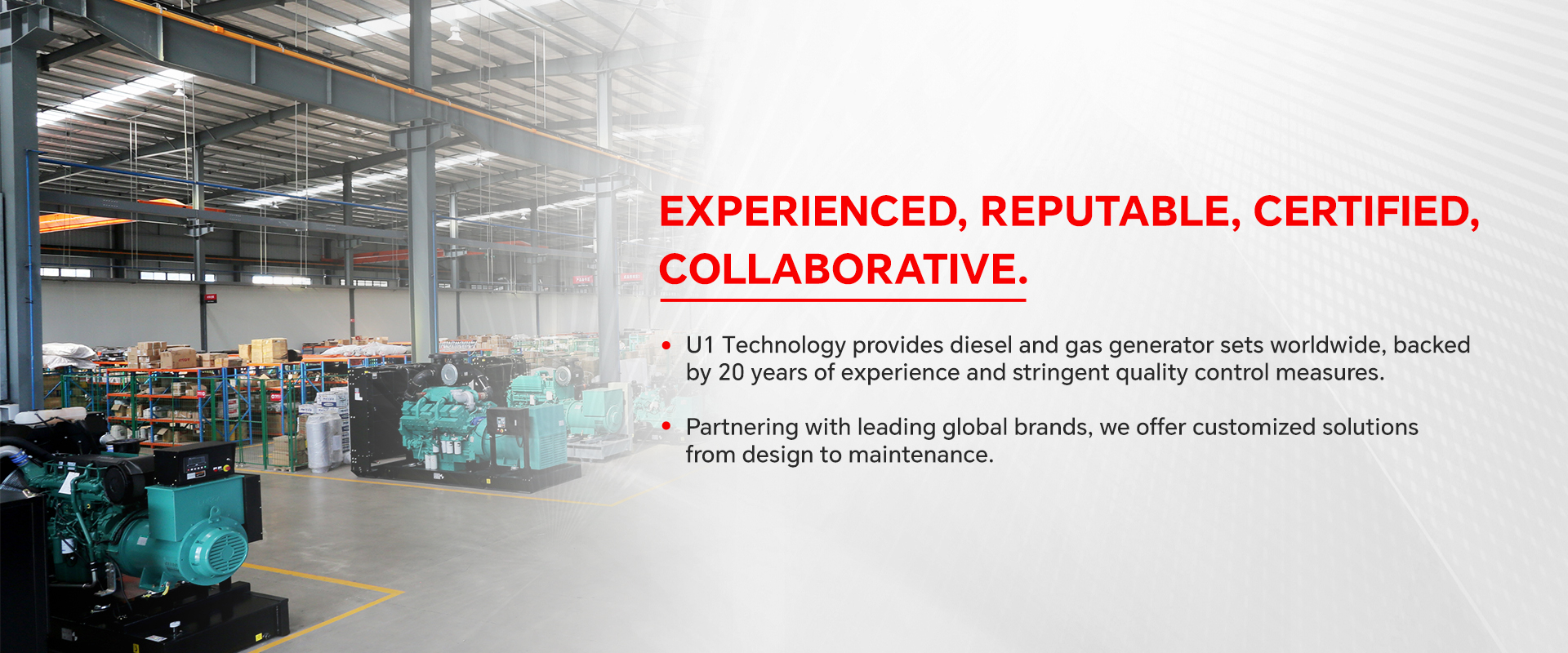In the arena of backup power generation, two prominent options jump out: gas and diesel generators. When the power quickly scans the blogosphere, and also the need for it is critical, selecting the best generator set can make a big difference. So how does one decide between gas and diesel generators? Each has its very own group of pros and cons, as well as the choice ultimately depends upon your unique needs and circumstances.

In this post, we are going to delve into the distinctive features, advantages, and disadvantages of propane and heavy duty diesel generators sets, helping you to make a well-informed decision on which option aligns best with your needs.
Natural Gas Generators
Advantages
Cleaner Emissions: Most significant features of gas main generators is the lower environmental impact. When propane burns, it generates fewer harmful emissions, including particulate matter, nitrogen oxides, and sulphur dioxide, compared to a diesel genset. As a result gas generators a greener selection for those concerned with quality of air and environmental sustainability.
Cost-Effective Fuel: Propane is often less costly than diesel fuel. The cost savings may be significant over the long term, particularly if prefer to make use of generator frequently. Furthermore, the production of gas is commonly more stable, reducing price fluctuations.
Less Maintenance: Propane generators typically require less maintenance than their diesel counterparts. This comes from the cleaner-burning nature of gas main, which leads to fewer deposits and soot buildup inside the engine, extending the generator’s lifespan.
Quieter Operation: Propane generators provide quieter operation. It is a vital consideration in areas and settings where noise pollution should be minimized.
Disadvantages
Limited Fuel Storage: A problem with natural gas generators is the reliance on a nonstop availability of propane. This is problematic during extended power outages or perhaps in remote areas where a frequent gas supply will not be available.
Lower Energy Density: Gas main includes a lower energy density in comparison with diesel, meaning you could have to have a larger storage capacity or more frequent refuelling for the same output.
Lower Fuel Efficiency: Gas main generators tend to be less fuel-efficient than diesel generators, which may increase operational costs ultimately.
Lower Portability: Due to the dependence on a separate gas supply, these generators are less portable and versatile than diesel generators.
Diesel Generators
Advantages
High Energy Density: Diesel fuel enjoys its high energy density. Therefore diesel generators provides more power within a smaller package, which makes them suited to applications where space is restricted.
Fuel Storage: Diesel generators hold the benefit from to be able to store fuel for longer periods without degradation. This may cause them a reliable selection for backup power in remote locations and throughout long-term power outages.
Fuel Efficiency: Diesel generators provide fuel efficiency, consuming less fuel for the same power output as gas main generators. This brings about lower operational costs.
Greater Reliability: Diesel engines are usually better made and sturdy, resulted in greater reliability in demanding conditions. They are usually the go-to option for mission-critical applications.
Disadvantages
Emissions and Environmental Impact: Diesel generators emit higher numbers of pollutants, including nitrogen oxides and particulate matter, that may have uncomfortable side effects on quality of air and public health. Stricter emissions regulations happen to be implemented to mitigate these issues.
Noise Levels: Diesel generators are often noisier than gas main generators, which is often a concern in areas or where noise pollution is really a consideration.
Fuel Availability and expense: Diesel fuel may be higher priced and be subject to price fluctuations. Additionally, storing vast amounts of diesel fuel can cause safety and environmental risks.
Maintenance Requirements: Diesel generators typically require more frequent maintenance as a result of soot and carbon buildup from the engine, which may boost the price tag of ownership.
When you Choose Natural Gas Generators?
Environmental Concerns: In case you prioritize environmental sustainability and cleaner emissions, an all-natural gas generator will be the approach to take.
Cost Savings: If you’re seeking to reduce fuel costs in the lon run and also have use of a trusted gas main supply, gas main generators may be more cost-effective.
Quiet Operation: In areas or places where noise levels must be kept down, natural gas generators would be the quieter choice.
More uncommon Use: If your generator operates as a backup for infrequent power outages, the bottom maintenance requirements of natural gas generators make sure they are an expedient option.
When to Choose Diesel Generators?
High Power Requirements: Prefer a high-power output in the compact package, diesel generators, using high energy density, will be the better choice.
Reliability: For mission-critical applications where reliability is paramount, including data centres or healthcare facilities, diesel generators will often be preferred due to their robust and sturdy engines.
Remote Locations: In areas with limited entry to a natural gas supply or during long-term power outages, diesel generators with their reliable fuel storage include the better choice.
Frequent Use: If your generator might find frequent use and you prioritize fuel efficiency, diesel generators may be more economical over time.
Conclusion
The selection between gas and diesel generators is determined by your requirements, budget, and environmental concerns. Both varieties of generators have their pros and cons, along with the key is to softly evaluate your requirements priorities before you purchase. Additionally, make sure to understand local regulations and emissions standards that will affect your choice.
For more information about Cummins diesel genset check this useful resource
